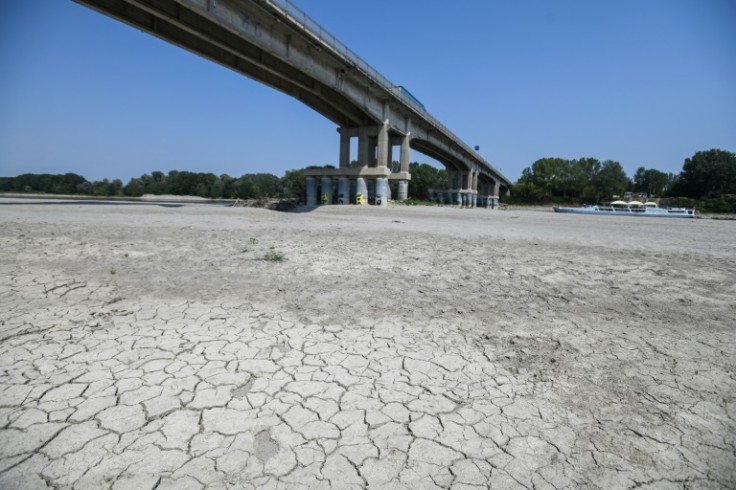Italy's worst drought uncovers historic WW2 shipwreck
If it doesn't rain soon, the country could soon face a serious drinking water shortage.
The drought in Italy has become so intense that a World War II-era shipwreck that had submerged in the Po River decades ago has now resurfaced.
The Zibello, a 160-foot (48.8-meter) barge, was used to transport wood in World War II and sank in 1943 in the Italian town of Gualtieri. It used to stay hidden beneath the river waters, but sometime people would catch a glimpse of the top of the barge.
The country is facing its worst drought in 70 years, causing rivers to run dry. The water levels in the Po River are so low that the shipwreck is now completely visible, per a report in Science Alert.
How bad is Italy's #drought? This ghostly river barge, the 50m (160-foot) #Zibello, sunk in 1943, is almost fully visible. The boat is usually hidden beneath the water of the #PoRiver. Water restrictions, regional states of emergency are on the way. #Sequia (@GettyImages photo). pic.twitter.com/2XrM5w39DC
— Eric J. Lyman (@EricJLyman) June 21, 2022
Alessio Bonin, who took photos of the wreckage with his drone, told The Guardian: "In recent years you could see the bow of the boat, so we knew it was there, but to see the vessel so exposed in March, when it was essentially still winter, was very dramatic."
"I've never seen such a drought at this time of year – our main worry used to be our river flooding, now we worry about it disappearing," he added.
The 450-mile (650km) Po flows from the Alps in the north-west before entering the Adriatic Sea. Low water levels have not only had an impact on the local population, but have affected production of fruits and vegetables, hydroelectric power and drinking water.
It is not just the Zibello that has come out of its watery grave, but several such incidents have been reported in other towns as well. A German tank was found close to Mantua while remains of an ancient hamlet resurfaced in Piedmont.
The drought has been caused by high temperatures coupled with scant rainfall and less snowfall in winter. The situation is so serious that leaders of Lombardy, Piedmont, Veneto and Emilia-Romagna want to declare a state of emergency.
"This drought is unique in history due to the combination of two anomalies – the lack of rain, on top of the elevated temperature, which is directly linked to climate change," said Luca Mercalli, the president of the Italian Meteorological Society.























